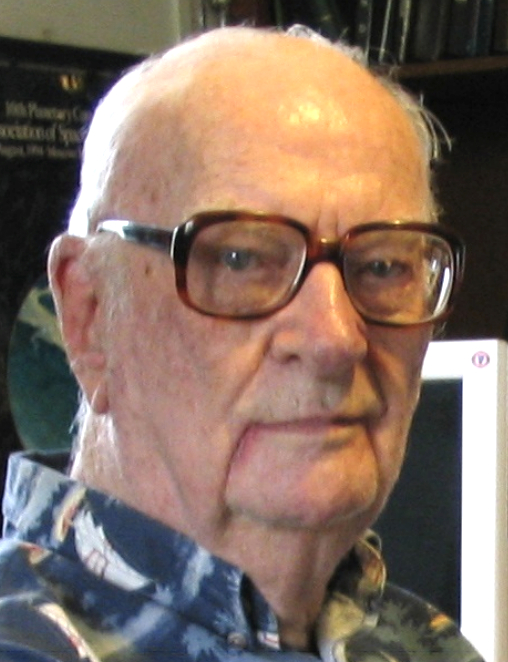On this date in 1917, science fiction writer and inventor Arthur C. Clarke was born in Minehead, Somerset, England. A stargazer as a boy, he could not afford to attend university. He became a radar specialist for the Royal Air Force during World War II. A lifelong nonbeliever, he refused to accept the “Church of England” affiliation put on his dogtag by the RAF and insisted they change it to “pantheist.” Clarke earned a degree in math and physics in 1948 at King’s College, London. He was the first to propose, in a technical paper in 1945, that geostationary satellites could make telecommunication relays, which later won him the 1982 Marconi International Fellowship and many other honors.
After selling science fiction throughout the 1940s, Clarke was writing full-time by 1951. In 1954 he suggested satellite applications for weather forecasting to the U.S. Weather Bureau. He turned from the stars to underwater exploration, concentrating on the coast of Sri Lanka, where he moved in 1956.
When Clarke was 36 he married Marilyn Mayfield, a 22-year-old American divorcee with a young son. They separated after six months, although the divorce was not finalized until 1964. He never remarried but was intimate with a Sri Lankan man, Leslie Ekanayake, who died in 1977. They were eventually buried together. Clarke’s New York Times obituary noted that journalists who asked if Clarke was gay were told, “No, merely mildly cheerful.”
His most famous work was the screenplay, co-written with Stanley Kubrick, for the 1968 film 2001: A Space Odyssey. The script was nominated for an Oscar. Clarke served as chair of the British Interplanetary Society. His TV programs included “Arthur C. Clarke’s Mysterious World” (1981) and “Arthur C. Clarke’s World of Strange Powers” (1984). He co-broadcast Apollo 11, 12 and 15 missions with Walter Cronkite and CBS News. He was wheelchair-bound starting in 1988 with post-polio syndrome.
In 2000 Clarke was knighted. Before his death at age 90, he left instructions about his funeral: “Absolutely no religious rites of any kind, relating to any religious faith, should be associated with my funeral.” He told the London Times in August 1992 that he was “an aggressive agnostic.” In 1999 he told Free Inquiry magazine, “One of the great tragedies of mankind is that morality has been hijacked by religion.” (D. 2008)


